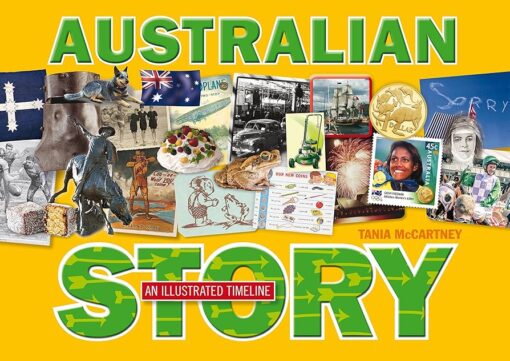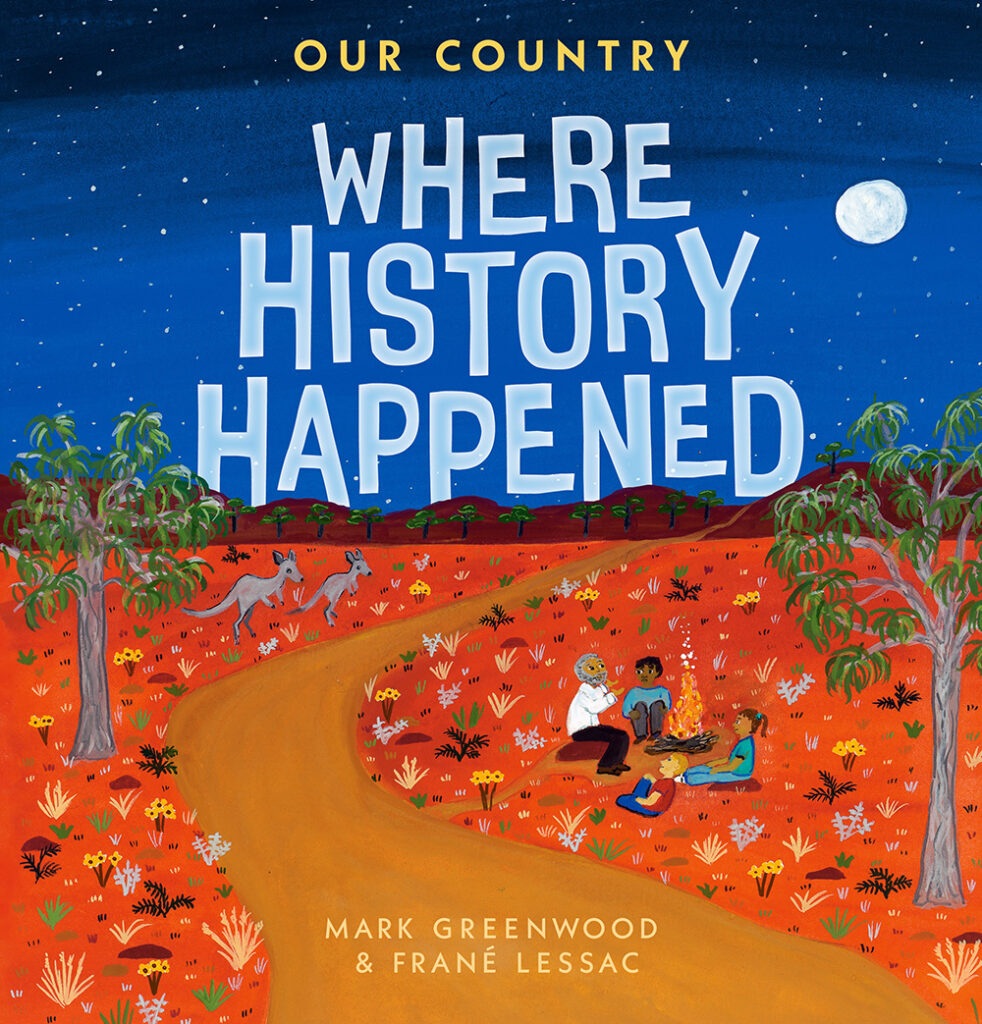I love the quote ‘The hand that holds the pen writes history’ but for my students I have modernised the thought to be ‘Who’s typing’?
I worked through the following lesson with my Year 5 class today and they loved it.
Background: We read the CBCA nominated story Where History Happened by Mark Greenwood and Frane Lessac We looked closely at the events the author included and wondered why he selected those events.
A Deep Dive into Timelines:
The students were then placed in groups and assigned a timeline to open and explore. They were required to look for events that were part of their given timeline that were not include in Where History Happened. They added their findings to a collaborate Microsoft Whiteboard that I had shared with them via Teams.
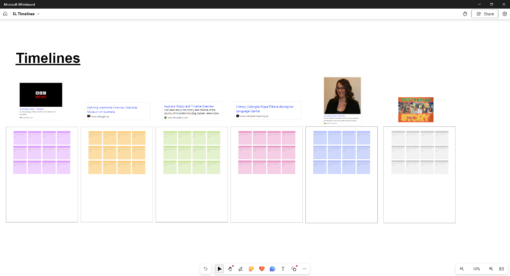
As a class, we chatted about why different timeline sources had highlighted different events in Australian history. We looked at the authors of each website/book and reflected on whether or not their background had an impact. We explored the urls (Is a .gov site more reliable?) and the country of origin of the timeline (would the BBC be an authority on Australian history?) Interestingly the BBC group stated that the timeline events had limited indigenous history.
What would we include?
Following their research, students suggested a range of events they thought were of significance in our history. We had some interesting suggestions. I used Microsoft Forms to create a survey listing the suggested events (26 in total). The students then completed the survey, selecting the 10 events they would include in a book about important events in Australian history. As a class we analysed the results and discovered that events with the most votes were events the students knew about or could relate to (including vegemite!). This highlighted for them, the unintentional bias we all bring to information.
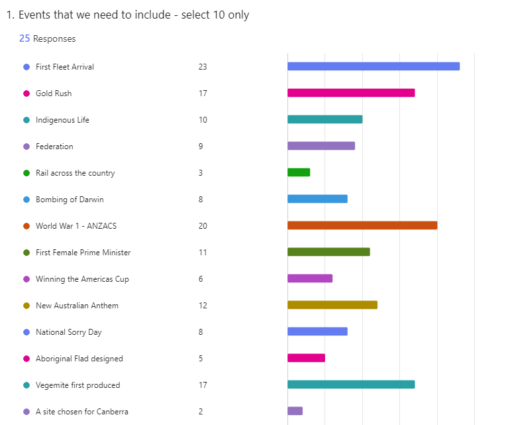
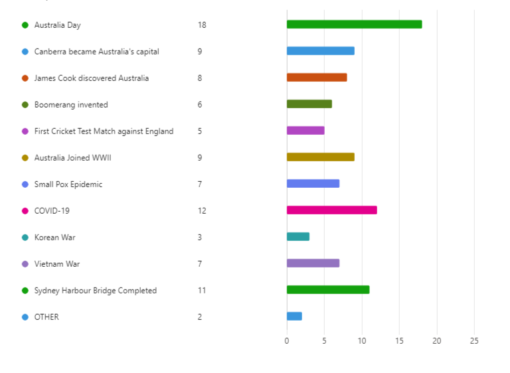
Sharing our new knowledge?
Students used ‘Flip’ (part of TEAMS – assignments) to record a message for others.
In their message they stated the importance of knowing the following details before accepting any information as reliable:
- the author of the information
- the author’s purpose for creating the information
- if the author has any experience or knowledge of the topic
- if the information is current
These questions are so important for all us to know – even information created by AI.
Note: This was a 2 hour Library lesson with students having 1-1 devices.
Timelines Used:
Text with timeline: Australian Story by Tania McCartney
